 Photo credit: Stanley Wong
Photo credit: Stanley WongMiranda Tacchia remembers her father reading Casper the Friendly Ghost comics aloud to her as a kid. “He would do these voices for the characters, and I always thought that was really funny,” she says.
This was her first introduction to the art form, and she grew up loving cartoons and drawing. “I was always looking for ways to incorporate it into school projects that didn’t require it,” she says. “One time I did a science project in fourth grade on botulism and made drawings of the bacteria as characters arguing with each other.”
After graduating from CalArts’ Character Animation department in 2012, Tacchia says, “Right out of school, I had trouble finding [jobs], so I tried to make work that I thought would get me hired by studios, which isn’t necessarily true to my own sensibilities.” For a decade, she has worked at studios including Disney, Nickelodeon, Cartoon Network, Warner Bros., and Titmouse, but she says that for a time she was all over the place in how she wanted her work to look.
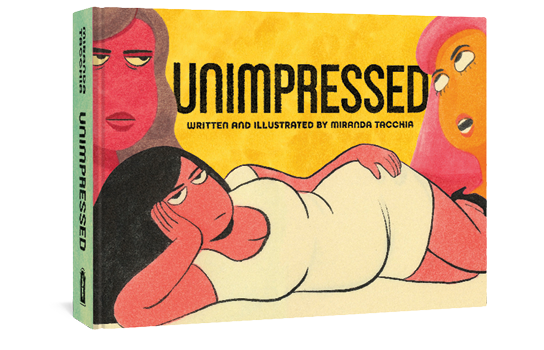
“Even though this is a creative field, you still don’t get a whole lot of creative freedom,” she says. “I’m designing from a storyboard that clearly dictates where the characters are and what it has to look like. It’s a skill that you learn over time, [but] you’re kind of on autopilot while you do it.”
She wanted to focus on her own visual style, and a few years into her animation career, she began making cartoons during her off-hours. “I started doing these little Post-it comics, and it became kind of a regular thing,” she says.
The comics were inspired by what she calls “everyday life, observational things” like heartbreak, as well as a “continually evolving mindset and period of questioning about relationships. None of the cartoons were literal, but I did pull ideas from personal experience, and that influenced how I approached them,” she says.
Each cartoon was illustrated using only markers, a brush pen, Post-its, and tape. Over the course of several years, she built up a body of work that she decided to make into a book. She pitched Unimpressed to Fantagraphics in the fall of 2019 and got a deal. “Shortly after that, we went into quarantine,” she says.
With the uncertainty brought on by the pandemic, she took her time putting the book together, taking a brief pause before resuming at the tail end of 2020 “scanning artwork, sorting it, [and] trying to make sure the right caption was with the right image.”
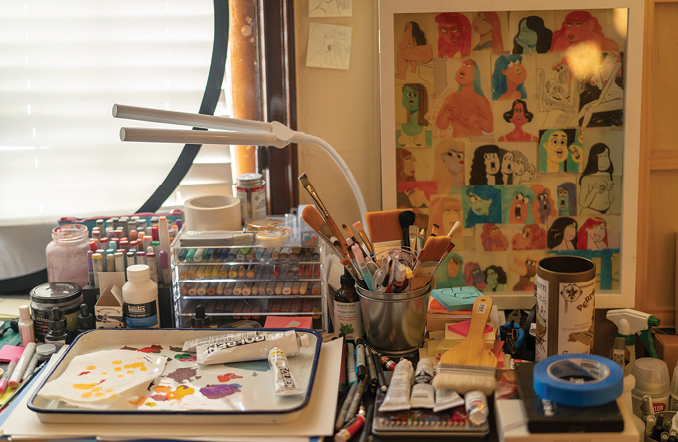
“I would spend about an hour or two every evening just scanning,” she recalls. “Scanning was the longest, most tedious process.” Editing down her cache of content was almost as daunting. “I tried to be as true to myself as I could. I didn’t want to take out too much. Even though I thought some of [the cartoons] were a little embarrassing or I had outgrown them, I wanted [the book] to reflect this stretch in my life [between 2016 and 2020] when I was doing them.”
Tacchia says that making this book is the high point of her career so far. Published in October, 2021, Unimpressed features more than 200 comics about women dealing with relatable issues like relationships (romantic and platonic), social media/technology, and self-image.
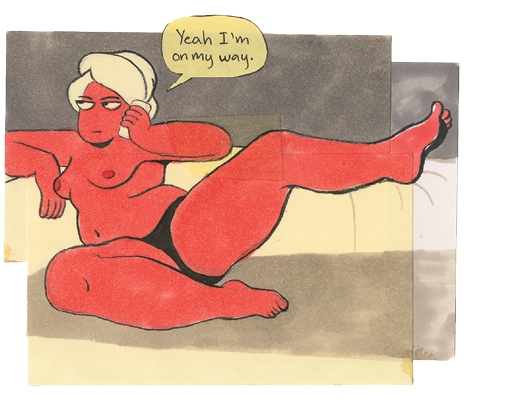
“Body [image] was a big theme in my work as I was coming to terms with my insecurities and learning how to accept things that I couldn’t really change,” Tacchia explains. “In general, I usually try to use somewhat generic-looking characters, but I always go back to my own likeness when I’m doing reference just because I’m there; I can go to the mirror and see how it looks when I raise my arm up this way or if I make a face. I see myself in the mirror every day so it’s hard for that not to percolate into how [I] draw.”
It also percolated into her book’s title. “When I was a kid, people remarked over and over, like a broken record, on how little I smiled,” she says. “I was told I looked angry, sad, or ‘unimpressed’ when I actually felt inwardly happy. I started realizing as I got older that even when I felt I was being physically expressive, I still just looked like Daria, or any other half-lidded, deadpan character you can name.” For a long time it confused and annoyed Tacchia that her joy wasn’t coming across to other people, and by drawing the characters in Unimpressed, she feels she was finally able to embrace her straight-faced exterior.
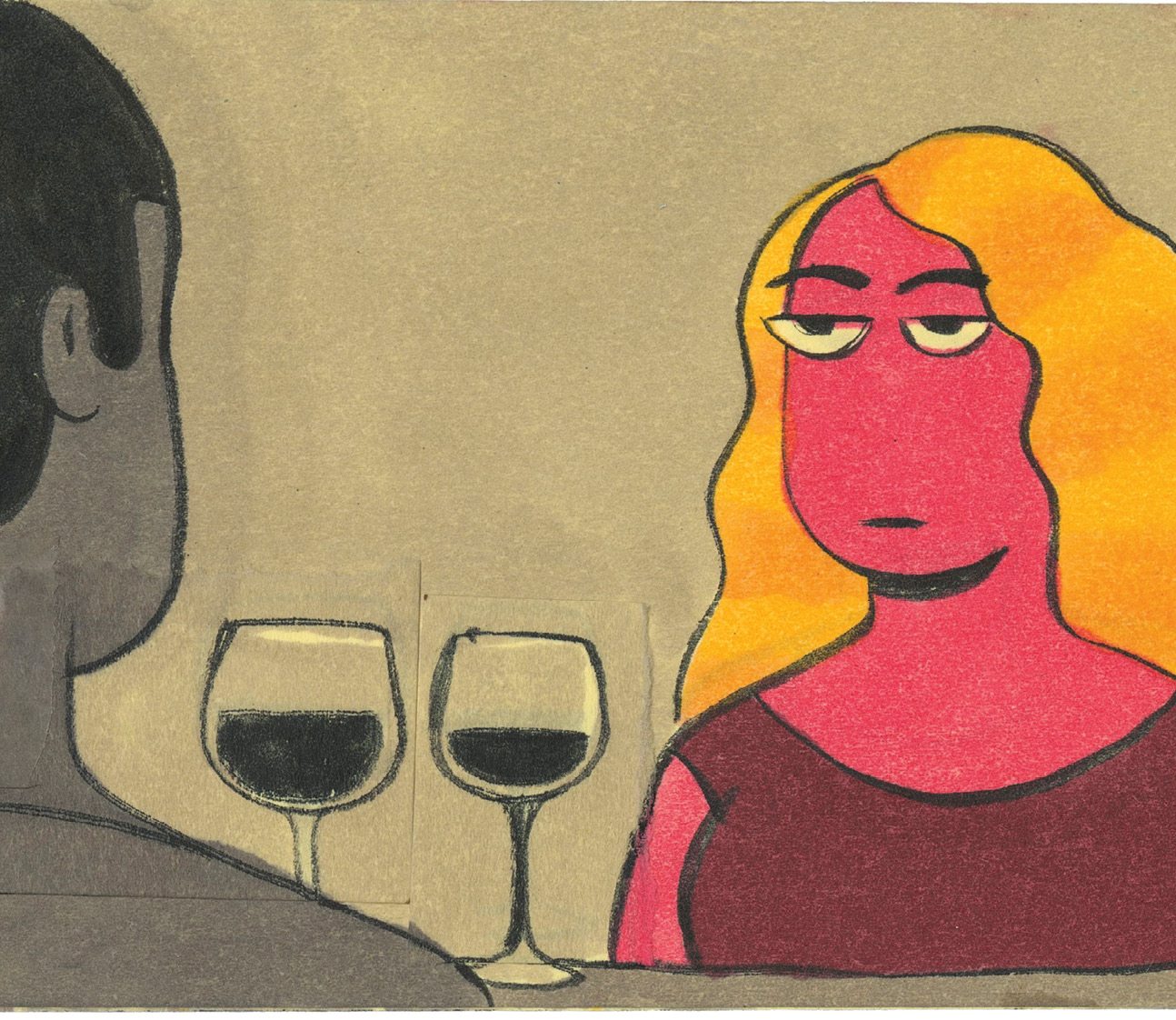


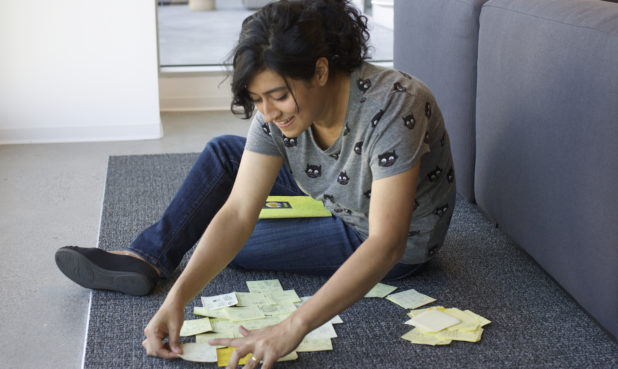
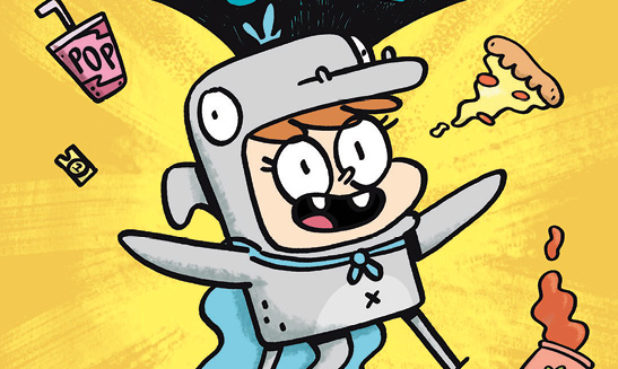
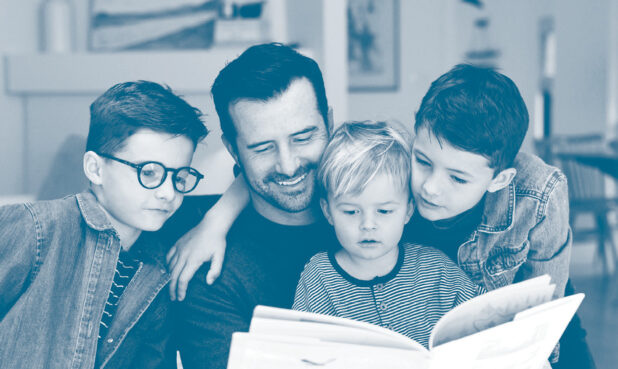
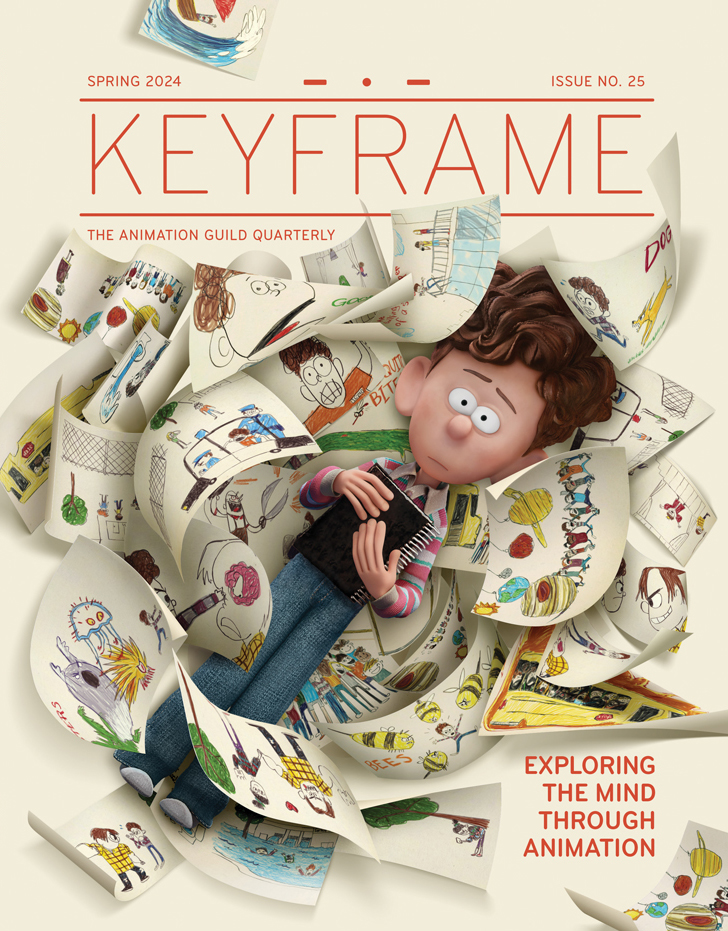

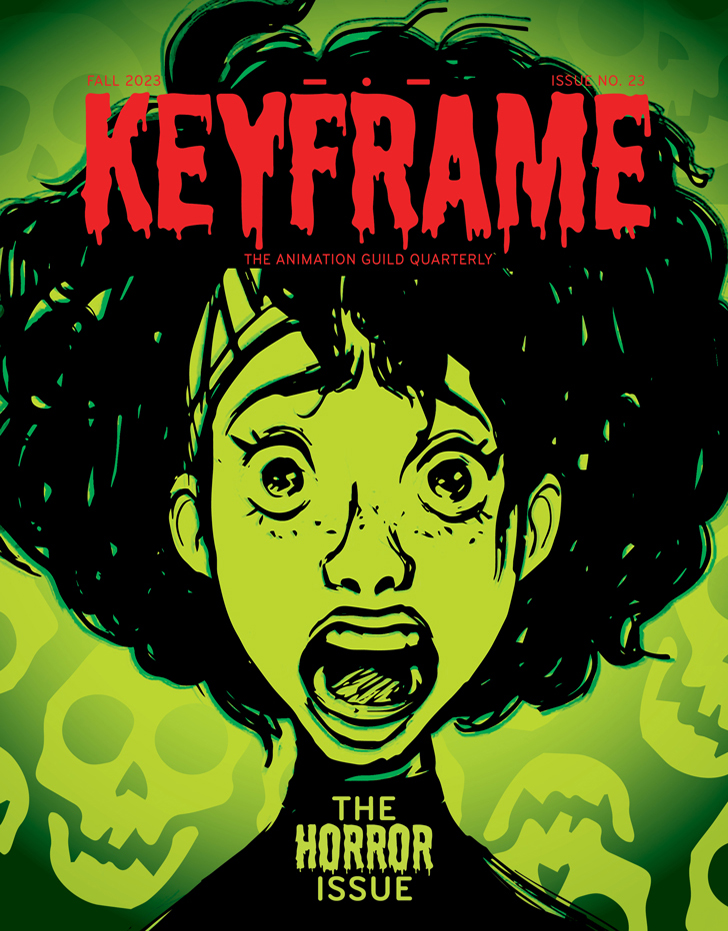
.png)